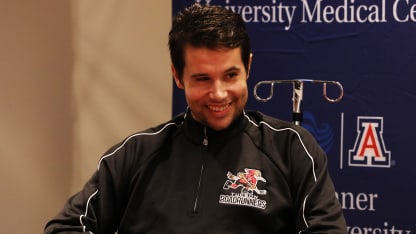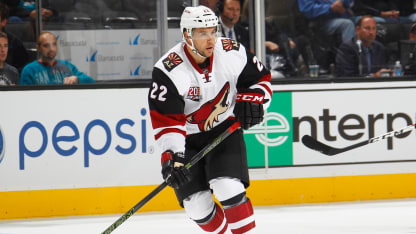Dr. Zain Khalpey, a cardiothoracic surgeon, said Cunningham's heart is fully repaired, after it essentially wasn't beating for the first couple of days after he collapsed on the ice. Forty-five minutes after the incident, Khalpey received a call from Dr. George Haloftis, a physician at St. Mary's who told him Cunningham was not responding to increasing dosages of Epinephrine and Levophed.
Cunningham was transferred to Banner, where he received advanced life-saving therapy using ECMO (extracorporeal membrane oxygenation), a specialized procedure for patients so critically ill that no other support for the heart and lungs is adequate.
The prognosis was grim. Cunningham was on a ventilator and bleeding from his lungs. Cunningham's mother, Heather, told the Arizona Daily Star, "I watched my son die right in front of my eyes."
Though Cunningham's condition continued to worsen, Khalpey used a left ventricular assist device, called an Oxy-LVAD, which allowed his heart to recover. Cunningham became stable and the road to recovery had begun.
"I don't think I will ever find the words to express how grateful I really am," Heather Cunningham said Wednesday. "Craig would not be with us today if these people had not gone that extra mile in every aspect of this situation. The only reason he survived the original incident was the continued refusal to give up in a seemingly hopeless situation.
"They had run out of options and had to create new options by pushing the boundaries of things they've tried and implanted before. Most of all they refused to give up in spite of hopelessness. These people are nothing short of a gift to mankind and I will remember the gift they have given every time I look at my son."
Selected by the Boston Bruins in the fourth round (No. 97) of the 2010 NHL Draft, Cunningham was claimed off waivers by the Coyotes on March 2, 2015. The forward has three goals and eight points in 65 NHL games with the Bruins and Coyotes, and four goals and 13 points in 11 games with Tucson, including the first goal in Roadrunners history on Oct. 14.















